Where next for Chris Froome?
We take a look at the teams possibly competing for the four-time Tour winner's signature
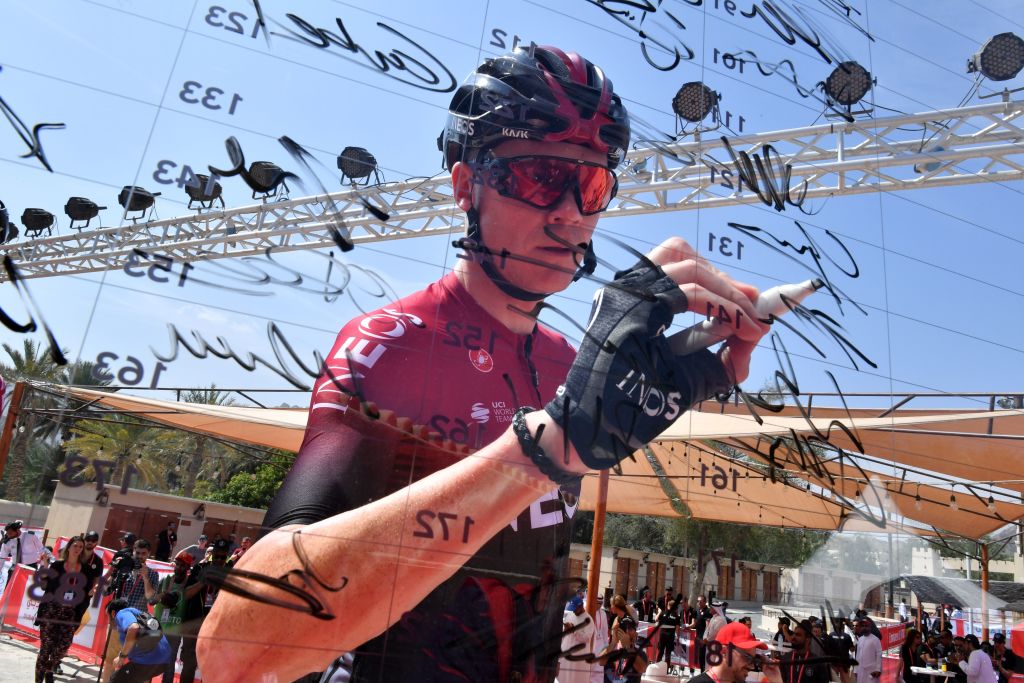
Thursday's news, exclusively reported here at Cyclingnews, that Chris Froome is discussing a possible mid-season transfer, has seen speculation about a future destination run wild.
A number of teams are in the frame, with his current squad Ineos among them. There are pros and cons to every move, and it could be that staying put at Team Ineos and fighting for position with Egan Bernal and Geraint Thomas at the team he knows so well turns out to be the best move.
Here, we break down the positives, negatives, and overall likelihoods of four possible moves for Froome. Ineos are there too, of course. Read on to find out what could be next for the four-time Tour de France winner.
Bahrain McLaren
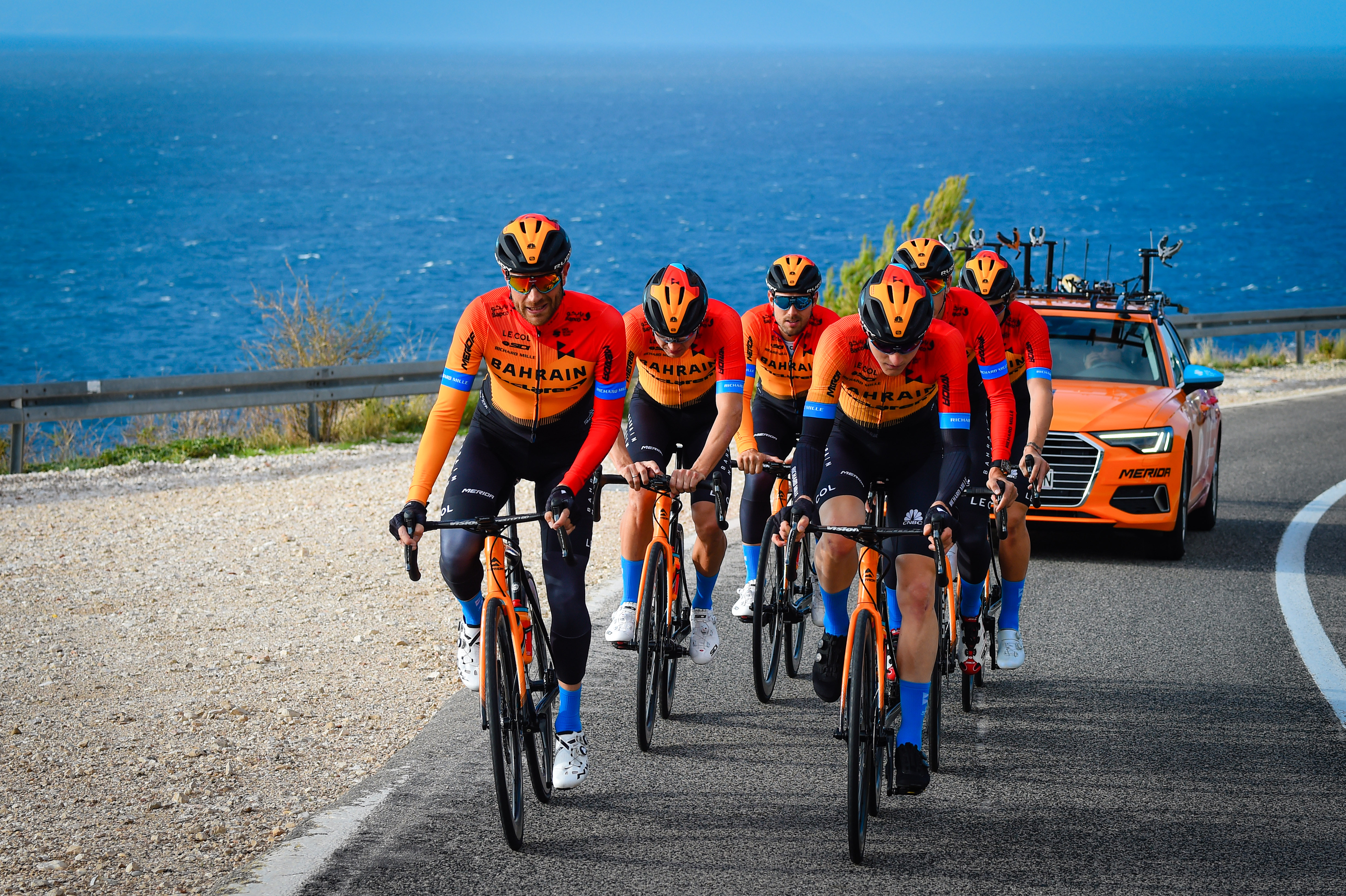
Pros: Signing for Bahrain McLaren either during this season or for next would provide Froome with almost clear – but still somewhat blurred – leadership at the Tour de France. The sticking point would come in the form of Mikel Landa, who was ushered in at the start of 2020 with that exact role in mind, but manager Rod Ellingworth would have the experience needed to smooth over any potential cracks.
The rest of the team is impressive, with Matej Mohorič, Dylan Teuns, Damiano Caruso, Pello Bilbao and the tried and trusted Woet Poels providing a clear spine within a possible Tour line up.
Cons: Ellingworth would have a hard sell convincing the riders that signing Froome was in their interests just a few months after the team enforced massive pay deferrals.
Froome may come at a lower rate than his existing wage – depending on when they potentially made the signing – but his arrival would still take considerable funds, and given how hard Bahrain and McLaren have been hit in recent months, such a move simply might not be feasible.
Get The Leadout Newsletter
The latest race content, interviews, features, reviews and expert buying guides, direct to your inbox!
Overall chances: Signing for Bahrain McLaren would feel like a relatively smooth transition for Froome. Ellingworth has already demonstrated his like for signing riders he’s worked with, after luring Poels and Mark Cavendish to the team. Funding would be the biggest question mark.
Israel Start-Up Nation
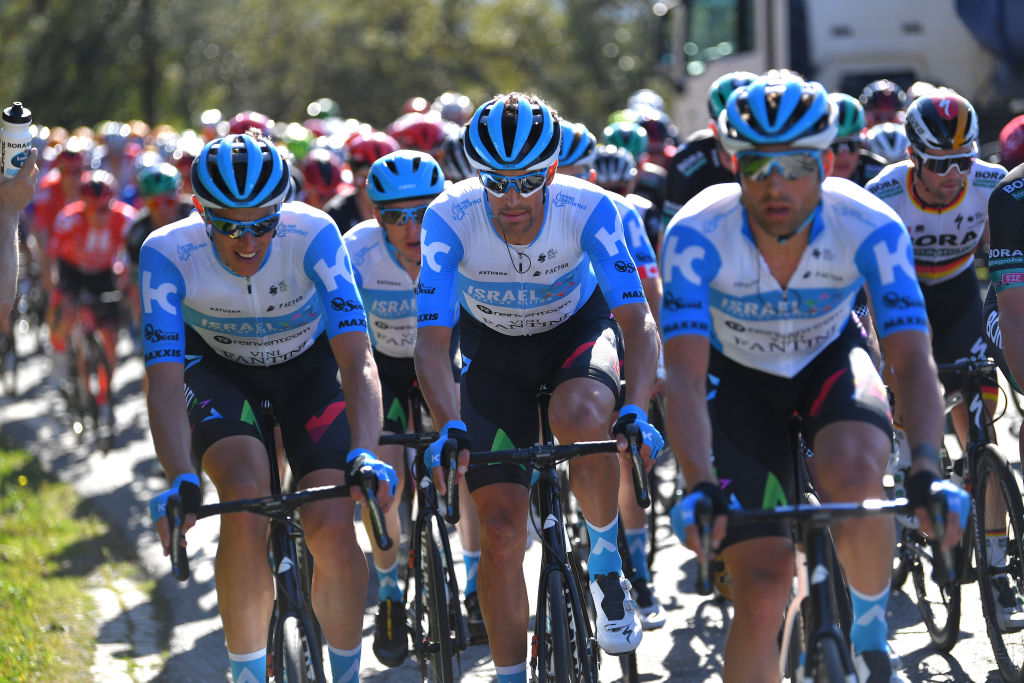
Pros: Absolutely no leadership questions here, with Dan Martin the only rider who might be tempted to raise his hand and ask questions if Froome signed. The team certainly doesn’t have the same depth as Bahrain McLaren but they’re not as poor as some might imagine – the problem that Israel Cycling Academy and Katusha faced over the last few years was simply down to the fact that they lacked genuine leadership and focal points.
Froome would unequivocally solve that. Martin, Daniel Navarro and Ben Hermans can all climb, while the team have a crop of riders who can ride cohesively on the flat. They’d also be one of the few teams that could afford Froome either this year or next.
Cons: Technically they’re in the same league as Ineos in so much as they’re WorldTour, but not a single rider on their roster – bar Martin perhaps – would make it into the Team Ineos Tour de France team. Three of them, at a push, would make the Ineos Giro squad. The gulf in class would be exposed right from the gun and their experience in even competing for Grand Tour honours is slim.
Overall chances: A good fit on paper but they would have to add considerable depth over the winter to tempt Froome into signing for them in 2021.
NTT Pro Cycling

Pros: Froome was linked to the team during their Dimension Data days, with rumours emerging during his last contract negotiation in 2017 that he would consider ending his career on a South African team.
The team has changed considerably since then, but their stage racing core of Roman Kreuziger, Domenico Pozzovivo, and Louis Meintjes does provide experience. Riding for them would be something of a fairytale ending for Froome’s career and it would bring back some of the spirit that Doug Ryder worked so hard on creating.
Cons: Froome isn’t going to join a team for sentimental reasons and the bare reality is that this team isn’t the Dimension Data of old. They don’t have the funds to offer the sort of contract Froome would demand and their position in the sport was already severely under threat even before the pandemic.
Overall chances: Sentimentally is one of the best matches here, and Froome would theoretically have a decent support squad around him too – especially if the early-season rejuvenation under Bjarne Riis continues. Funding looks like the main stumbling block here.
Movistar
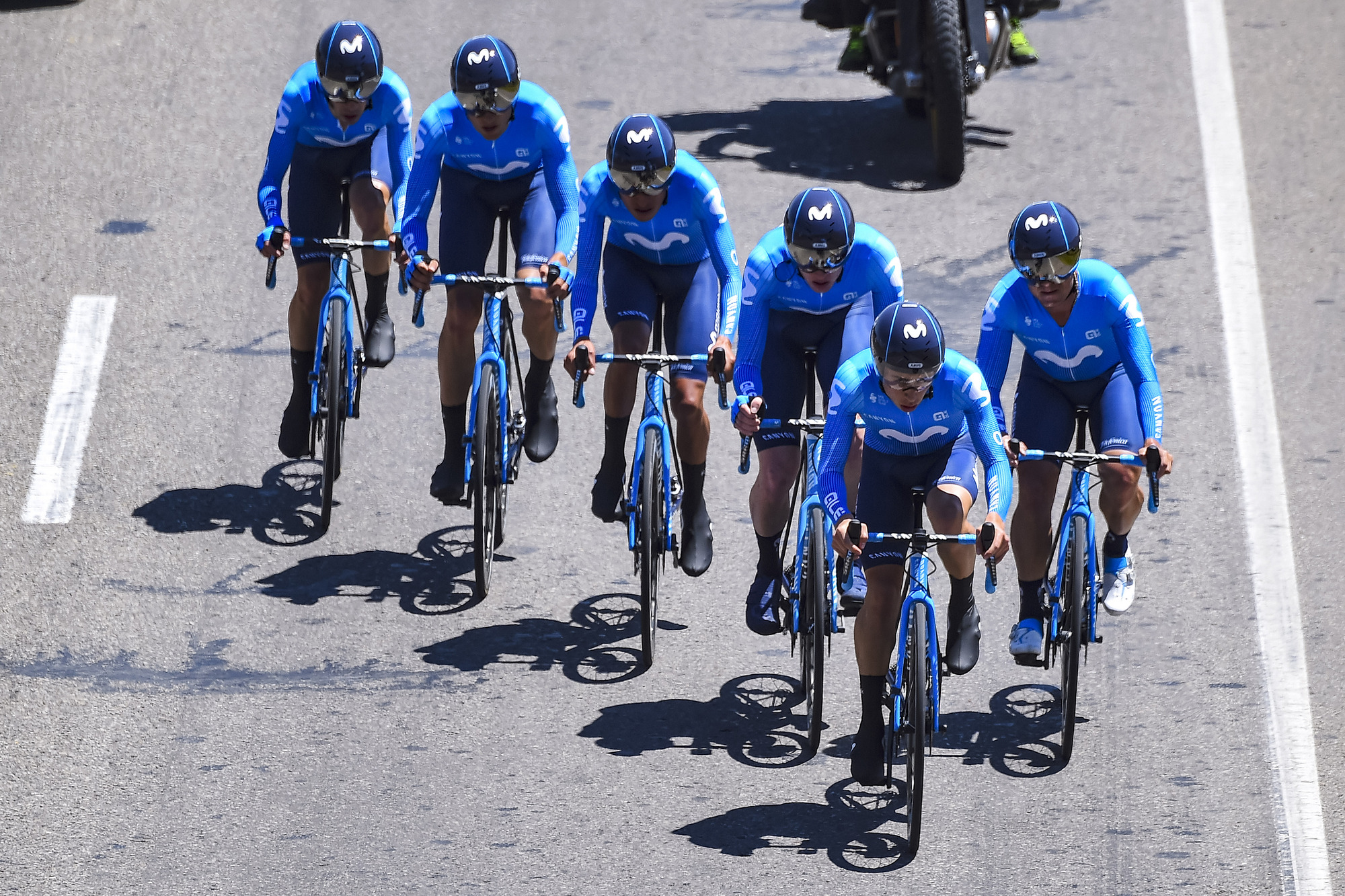
Pros: The Spanish squad know how to win Grand Tours and their experience and depth would provide Froome with a somewhat comfortable landing should he parachute from Ineos’ orbit.
Alejandro Valverde would unlikely stand in his way at the Tour de France, while new signing Enric Mas is still learning his trade. Marc Soler would provide reliable cover, and the team’s financial future hasn’t been hit anywhere near as badly as most of the WorldTour squads. There's the added fact that Movistar have expanded their business into the United Kingdom.
Cons: Anyone who has followed the team’s recent exploits at Grand Tours in recent years will know that the team has had discipline issues when it came to leadership. Whether those problems have left, with Quintana and Landa departing, remains to be seen but this is very much Valverde’s mob. He may not want leadership at the Tour de France but that doesn’t necessarily mean that he’ll want Froome to have it either.
Overall chances: A fully fit Froome could conceivably win a Grand Tour with Movistar, who are arguably as strong as Bahrain McLaren and who know what it takes to win Grand Tours.
They’re financially in a better position than many of the teams but they’re also driven by their sponsor's demands when it comes to athlete awareness. Given their priority is on Spanish and South American talent, would they not be diluting that by signing Froome?
Team Ineos
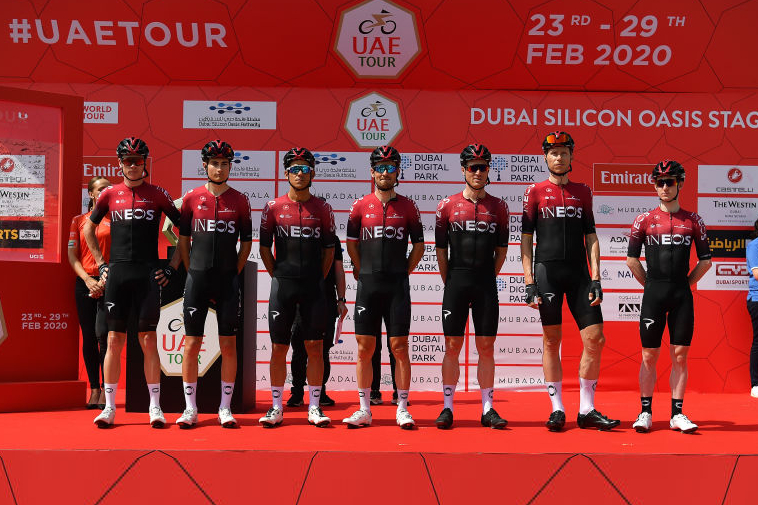
Pros: Froome has enjoyed the best years of his career at Brailsford’s team, with seven Grand Tours to his name making him one of the most successful stage racers the sport has ever seen. The squad is head and shoulders above anyone else and they’ve won the Tour de France every year bar one since 2012.
Even in these uncertain times, Ineos look destined to win another Tour, and Froome has vital experience when it comes to delicate leadership questions. While links to other teams have the potential to drive up Froome’s value, the fact remains that if he wants the support of the best team in the world he has to stay.
Cons: However, if he stays, that support may be siphoned off towards Egan Bernal, who is seen by many as the heir to Froome’s throne. Also, if Ineos begin to feel the financial pinch they might be unable or perhaps unwilling to give Froome another long-term deal, and the questions over leadership are most definitely real. Froome will want to avoid a Movistar-leadership situation from developing.
Overall chances: Froome was at the peak of his powers the last time he negotiated a new deal but the landscape has changed since then. The Dauphiné crash, Bernal’s emergence, the pandemic, and age have all entered the equation but, despite all that, Ineos remains Froome’s team. It's hard to imagine him in any other colours.
He is also confident that he is back to his best and winning a fifth, or even sixth Tour, will be central to his thinking over the coming months. If he moves, it will be because he feels that completing that legacy is best served on another squad.
Daniel Benson was the Editor in Chief at Cyclingnews.com between 2008 and 2022. Based in the UK, he joined the Cyclingnews team in 2008 as the site's first UK-based Managing Editor. In that time, he reported on over a dozen editions of the Tour de France, several World Championships, the Tour Down Under, Spring Classics, and the London 2012 Olympic Games. With the help of the excellent editorial team, he ran the coverage on Cyclingnews and has interviewed leading figures in the sport including UCI Presidents and Tour de France winners.
